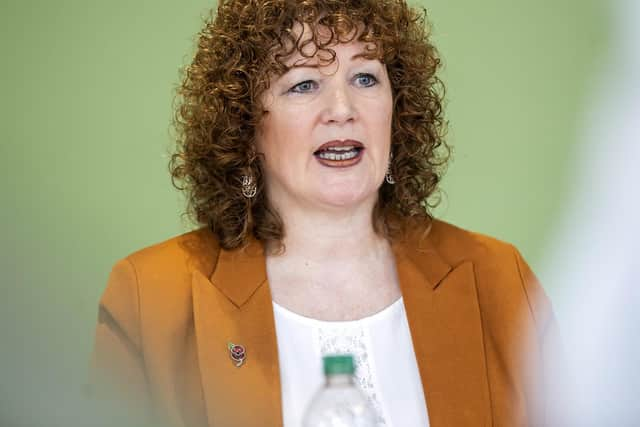Emergency powers outlined for chief executive after change to constitution at Northamptonshire County Council


Northamptonshire County Council voted through the amendments at its full council meeting on March 19, prior to the coronavirus lockdown being enacted.
It changes the procedure for taking urgent decisions, and outlines how they would be taken by the chief executive.
Advertisement
Hide AdAdvertisement
Hide AdDeputy leader Councillor Lizzy Bowen said: “The council’s constitution sets out who in the council has authority to make decisions and the procedures for making those decisions when they are needed to be taken urgently.


“The urgent decisions by the chief executive may take precedence over those normally reserved for council. So where possible, the chief executive would seek the views of the chairman of the relevant committee, the leader of the council or the deputy, and the monitoring officer.”
The amendments, put forward by Councillor Bowen, say it will help in cases where ‘the council needs to be able to respond quickly where failure to do so would not be in the public interest’.
Currently, public council meetings have been postponed due to the government’s strict social distancing measures.
Advertisement
Hide AdAdvertisement
Hide AdThe amendment states that emergency powers should only be used when a service is not being provided, would result in the council breaking the law or financial rules, the public interest would be harmed, and when the council would suffer financial loss or consultation deadlines were not being met.
They should not be used in order to spare ‘the possibility of embarrassment being caused’ to an officer or councillor, the possibility of ‘adverse publicity’ for the council, to cover for poor planning or in order to 'circumvent the requirements of financial procedure rules'.
If the chief executive, Theresa Grant, does make an urgent decision it must be recorded in writing, with a report being submitted at the next meeting explaining the decision, the reasons for it and why it was treated as a matter of urgency.
Councillor Bowen added: “This is fairly common in a lot of councils but it’s just something we didn’t have before and was in urgent need of putting into the constitution. It also fulfils specific needs in this current time.”
Advertisement
Hide AdAdvertisement
Hide AdLabour leader Councillor Danielle Stone said she ‘fully understood’ the reasons for having emergency protocols in place, but highlighted the need to be transparent with such decisions. She also called for the chief executive to consult with opposition leaders as well before taking such decisions.
She said: “Obviously we are in a very urgent situation at the moment and they will be brought into play fairly soon I’m sure. What’s really important is that we have good decision making, and also good scrutiny and democratic accountability.
“I think it’s really important that there would be consultation with the leaders of the opposition groups. Because that is where the democratic accountability lies and you will be criticised very heavily for having a closed door and a secretive approach to things if you don’t do that.
“We need to be open and transparent and you will know that the opposition leaders will be very happy to work in unison with the administration and the chief executive on urgent matters. We won’t be obstructive, we will be helpful.”